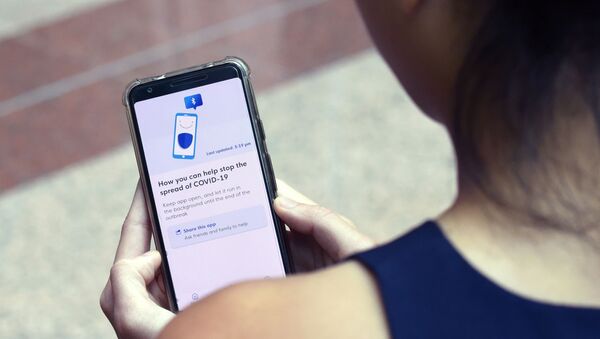A new NHS contact tracing app is being trialled on the Isle of Wight this week. Residents have been asked to download a smartphone app that monitors how close they have been to other people.
This new app is part of the government's strategy for coming out of the coronavirus lockdown, which aims to have widespread testing and contact tracing in place to monitor and reduce any future outbreaks.
WATCH: Our test, track & trace system enables us to defeat and slow the spread of #coronavirus. Our app - launching as a pilot today on the Isle of Wight - is a vital part. @SkyNews pic.twitter.com/gllEBzl65z
— Matt Hancock (@MattHancock) May 5, 2020
So far, on the date of publication, there have been 190,584 confirmed cases of COVID-19 in the UK and 28,734 deaths.
What is Contact Tracing?
Contact tracing is the method of preventing the spread of disease. Health workers interview people who have been diagnosed with coronavirus and work out who they might have recently been in contact with.
They put together a timeline and network of contacts, telling other people who might have been exposed to the infected person to quarantine themselves.
Contact tracing is already being used by various countries, including China, Singapore and Germany.
What Are the UK’s Plans?
The UK is planning to roll out its contact tracing app and phone team by the middle of May.
The government is getting ready to deploy a contact tracing team of 3,000 civil servants and health workers, and 15,000 call handlers.
Their telephone tracing will be used alongside the smartphone app which is currently being trialled on the Isle of Wight.
How Does the App Work?
The NHS contact tracing app works by using Bluetooth signals to detect when two phones come close to each other, and anyone who becomes unwell with coronavirus symptoms can notify the app, which would then inform other users with whom they had significant contact.
The app will recommend those people self-isolate in case they have contracted the disease. Those contacted won't know the identity of the person who may have passed on coronavirus.
If the person then takes a test and tests negative, they may be released from their self-isolation by a notification through the app.
Is User Data Safe?
Several concerns around data and privacy have been raised in relation to contact-tracing apps.
According to the BBC, civil rights group Liberty said the government must take the risks seriously, and should not make installing the app a condition to leaving the lockdown or returning to work.
''Millions of us are going to need to trust the app and follow the advice it provides,'' says NHSX, the technology arm of the health service.
It says the information gathered will only ever be used for health and research purposes, and that the app can be deleted at any time.
"The problem with a centralised approach such as in the UK that if the system was hacked, then each person's identifying code might somehow be linked to them thereby allowing them to be tracked. Another problem is that there is nothing to stop people from falsely claiming they are ill. For instance, a group of young people who perhaps do not wish to return to school could agree to mis-report symptoms and it would appear that there is an outbreak in that postcode region. That is always a problem with anonymous reporting systems. There is also the worry about mission creep where the government repurpose the system or decide to use the data for something other than it was designed for. There is a large element of trust needed by the public", says Kevin Curran, professor of cybersecurity at the Department of Computing, Engineering and the Built Environment at Ulster University.
Health Secretary Matt Hancock has, however, assured that the app will take "full consideration" of privacy concerns.




